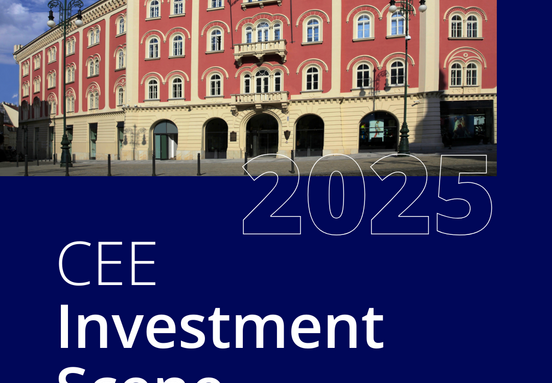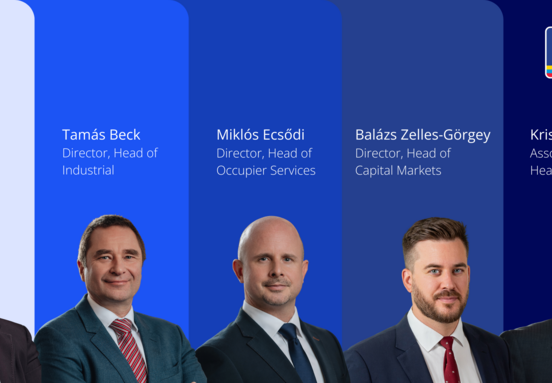At the RICS Built Environment European Summit (BEES) organised in Budapest on 21 October 2025, Stefan de Goeij, MRICS, Partner and Head of Sustainability & ESG for CEE at Cushman & Wakefield, as well as Chairman of the Advisory Board of RICS in the Czech Republic, hosted an interactive workshop titled “ESG in Real Estate Valuation – Paving the Way Forward.” The session brought together over 40 valuation professionals, investors, and ESG leaders from across Europe, marking a major milestone in the industry’s journey toward integrating sustainability into valuation standards and processes.
The workshop explored the accelerating influence of ESG on real estate value, highlighting how regulatory pressure, investor expectations, and market dynamics are converging to make sustainability a core component of valuation. The session opened with the presentation of results from the Sustainable Real Estate Survey Europe by RICS, which revealed that the top drivers for ESG investments are regulatory and legal requirements followed by client demand, while the key barriers according to respondents are lack of evidence or data on return on investment, as well as high initial costs.
Participants discussed the challenges of data availability and the need for transparency in valuation assumptions, as well as the importance of aligning methodologies with institutional investor requirements. The conversation emphasized that while a green premium remains elusive, a brown discount is increasingly evident, while some markets—such as Amsterdam and London — report significantly higher rents for energy-efficient assets, creating even a ’super’ premium. These findings are further supported by the RICS ESG Datalist, which highlights similar market trends and provides key indicators that, when analyzed, can substantiate such rental or price differentials.
The workshop also featured insights into how ESG is reshaping deal structures, including a case where sustainability capex replaced traditional rent-free incentives in a sale-and-leaseback transaction. Discussions underscored the shift from asset-level to system-level thinking, with tenants emerging as key drivers of ESG performance and valuation impact. The consensus was clear: ESG is no longer a choice—it’s a standard. From the RICS Red Book to institutional risk assessments, sustainability is now a core requirement for valuers, financiers, and auditors alike.
Chayma Oueslati MRICS, Head of Sustainability & ESG for France, emphasized the importance of integrating ESG into every stage of the asset lifecycle, noting that “our clients are increasingly looking for actionable strategies that go beyond compliance—strategies that create long-term value and resilience.” She explained the methodological approach by which ESG indicators—such as energy efficiency, emissions, and regulatory compliance—can be translated into capital expenditure requirements, making them readily integrable into the valuation process.
The workshop concluded with a commitment to continued collaboration. The momentum generated in Budapest signals a new era for valuation professionals—one where sustainability is not just a consideration, but a cornerstone of value.
Cushman & Wakefield’s presence at the summit underscored the firm’s leadership in sustainability advisory. Stefan de Goeij emphasizes the strategic importance of early action, stating that “making investments today for regulatory compliance tomorrow is not just about meeting standards—it’s about building a resilient reputation and staying ahead of the curve. The advantage of acting now is that these investments are meaningful and more cost-effective than they will be in the future.”
Katarzyna Lipka, Head of Research & Consultancy for CEE, highlighted the firm’s data-driven approach: “we are investing in tools and analytics that help bridge the ESG data gap, enabling our clients to make informed, transparent decisions.”
Michaela Killingerova, Senior Valuer at CW Czech Republic, noted that “the market is clearly evolving beyond regulatory compliance toward measurable performance. Both tenants and investors are actively prioritizing sustainability, especially energy efficiency. For valuers, this shift demands a more nuanced understanding of how operational performance translates into asset value—calling for creativity in leasing strategies and a proactive approach to asset management that supports long-term valuation outcomes.”
Edina Winkler MRICS, Associate Valuer at CW Hungary, added that “educating clients on how ESG data influences value is a critical part of our role. We’re not just valuers—we’re strategic partners helping clients future-proof their portfolios.
Cushman & Wakefield








